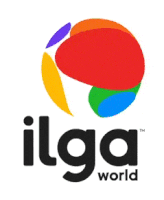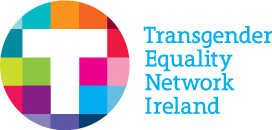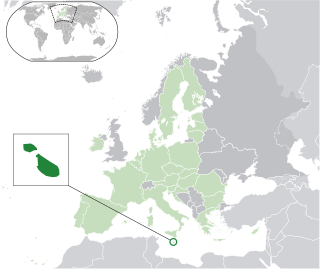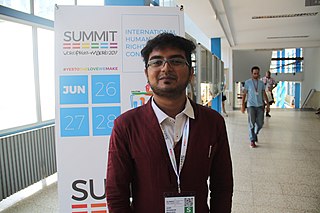
The International Lesbian, Gay, Bisexual, Trans and Intersex Association (ILGA) is an organization which is committed to advancing human rights to all people, disregarding gender identity, sex characteristics and expression. ILGA participates in a multitude of agendas within the United Nations, such as creating visibility for LGBTI issues by conducting advocacy and outreach at the Human Rights Council, working with members to help their government improve LGBTI rights, ensuring LGBTI members are not forgotten in international law, and advocating for LBTI women's issues at the Commission on the Status of Women.
The following outline is provided as an overview of and topical guide to transgender topics.

ILGA-Europe is the European region of the International Lesbian, Gay, Bisexual, Trans and Intersex Association. It is an advocacy group promoting the interests of lesbian, gay, bisexual, trans and intersex (LGBTI) people, at the European level. Its membership comprises more than 500 organisations from throughout Europe and Central Asia. The association enjoys consultative status at the United Nations Economic and Social Council and participatory status at the Council of Europe.

LGBT people in Bulgaria face legal challenges not experienced by non-LGBT residents. Both male and female same-sex relationships are legal in Bulgaria, but same-sex couples and households headed by same-sex couples are not eligible for the same legal protections available to opposite-sex couples. Discrimination on the basis of sexual orientation has been banned since 2004, with discrimination based on "gender change" being outlawed since 2015. In July 2019, a Bulgarian court recognized a same-sex marriage performed in France in a landmark ruling. For 2020, Bulgaria was ranked 37 of 49 European countries for LGBT rights protection by ILGA-Europe. Like most countries in Central and Eastern Europe, post-Communist Bulgaria holds socially conservative attitudes when it comes to such matters as homosexuality and transgender people.
The International Day Against Homophobia, Biphobia and Transphobia (IDAHOBIT) is observed on May 17 and aims to coordinate international events that raise awareness of LGBT rights violations and stimulate interest in LGBT rights work worldwide. By 2016 the commemorations had taken place in over 130 countries.

Lesbian, gay, bisexual, and transgender (LGBT) persons in Armenia face legal and social challenges not experienced by non-LGBT residents, due in part to the lack of laws prohibiting discrimination on the grounds of sexual orientation and gender identity and in part to prevailing negative attitudes about LGBT persons throughout society.

LGBT people in Azerbaijan face significant challenges not experienced by non-LGBT residents. Same-sex sexual activity has been legal in Azerbaijan since 1 September 2000. Nonetheless, discrimination on the basis of sexual orientation and gender identity are not banned in the country and same-sex marriage is not recognized.

Lesbian, gay, bisexual, transgender (LGBT) rights in Kosovo have improved in recent years, most notably with the adoption of the new Constitution, banning discrimination based on sexual orientation. Kosovo remains one of the few Muslim-majority countries where LGBT pride parades are held annually.

Laws governing lesbian, gay, bisexual, and transgender (LGBT) rights are complex in Asia, and acceptance of LGBT persons varies widely. Same-sex sexual activity is outlawed in at least twenty Asian countries. In Afghanistan, Brunei, Iran, Qatar, Saudi Arabia, the United Arab Emirates and Yemen homosexual activity is punishable by death. In addition, LGBT people also face extrajudicial executions from non-state actors such as the Islamic State of Iraq and the Levant and Hamas in the Gaza Strip. While egalitarian relationships have become more frequent in recent years, they remain rare.

Queer Cyprus Association is an LGBTQ rights organisation in Northern Cyprus aimed to deal with criminal law amendments of TRNC which criminalises same-sex relationships. They seek equal human rights including to "fully decriminalize homosexuality, equalize the age of consent and better protect LGBTQ people under the law.”
The European Parliament Intergroup on LGBTI Rights is an intergroup of the European Parliament's legislators which focuses on the rights of lesbian, gay, bisexual, transgender and intersex (LGBTI) persons both inside and outside the European Union. It is a cross-party group of Members of the European Parliament counting over 150 supporters from five political groups and all EU countries. The LGBTI Intergroup remains the largest in the 2019 to 2024 legislature.

Global Action for Trans Equality (GATE) is an organisation and think tank on gender identity, sex characteristics and bodily diversity issues. The current executive director is Mauro Cabral Grinspan. Cabral Grinspan is an Argentinian intersex and trans activist, and signatory of the Yogyakarta Principles.

Sebastian Rocca is a social entrepreneur, an LGBTI rights advocate, and founder of Micro Rainbow International.

The following outline offers an overview and guide to LGBT topics.

Transgender Equality Network of Ireland (TENI) is an Irish nonprofit organisation founded in 2006, which seeks to improve conditions and rights for transgender people and their families in Ireland.

Intersex people are born with sex characteristics that "do not fit the typical definitions for male or female bodies". They are substantially more likely to identify as lesbian, gay, bisexual, or transgender (LGBT) than the non-intersex population, with an estimated 52% identifying as non-heterosexual and 8.5% to 20% experiencing gender dysphoria. Although many intersex people are heterosexual and cisgender, this overlap and "shared experiences of harm arising from dominant societal sex and gender norms" has led to intersex people often being included under the LGBT umbrella, with the acronym sometimes expanded to LGBTI. Some intersex activists and organisations have criticised this inclusion as distracting from intersex-specific issues such as involuntary medical interventions.

Intersex rights in Malta since 2015 are among the most progressive in the world. Intersex children in Malta have world-first protections from non-consensual cosmetic medical interventions, following the passing into law of the Gender Identity, Gender Expression and Sex Characteristics Act in 2015. All Maltese intersex persons have protection from discrimination. Individuals who seek it can access simple administrative methods of changing sex assignment, with binary and non-binary forms of identification available.

Gopi Shankar Madurai is an Indian equal rights and Indigenous rights activist. Shankar was one of the youngest, and the first openly intersex and genderqueer statutory authority and one of the candidates to contest in 2016 Tamil Nadu Legislative Assembly election. Shankar is also the founder of Srishti Madurai Student Volunteer Collective. Shankar's work inspired the Madras High Court to direct the Government of Tamil Nadu to order a ban on forced sex-selective surgeries on intersex infants. In December 2017, Shankar was elected to the executive board of ILGA Asia. In August 2020, the Ministry of Social Justice and Empowerment appointed Shankar as the South Regional representative in the National Council for Transgender Persons.















